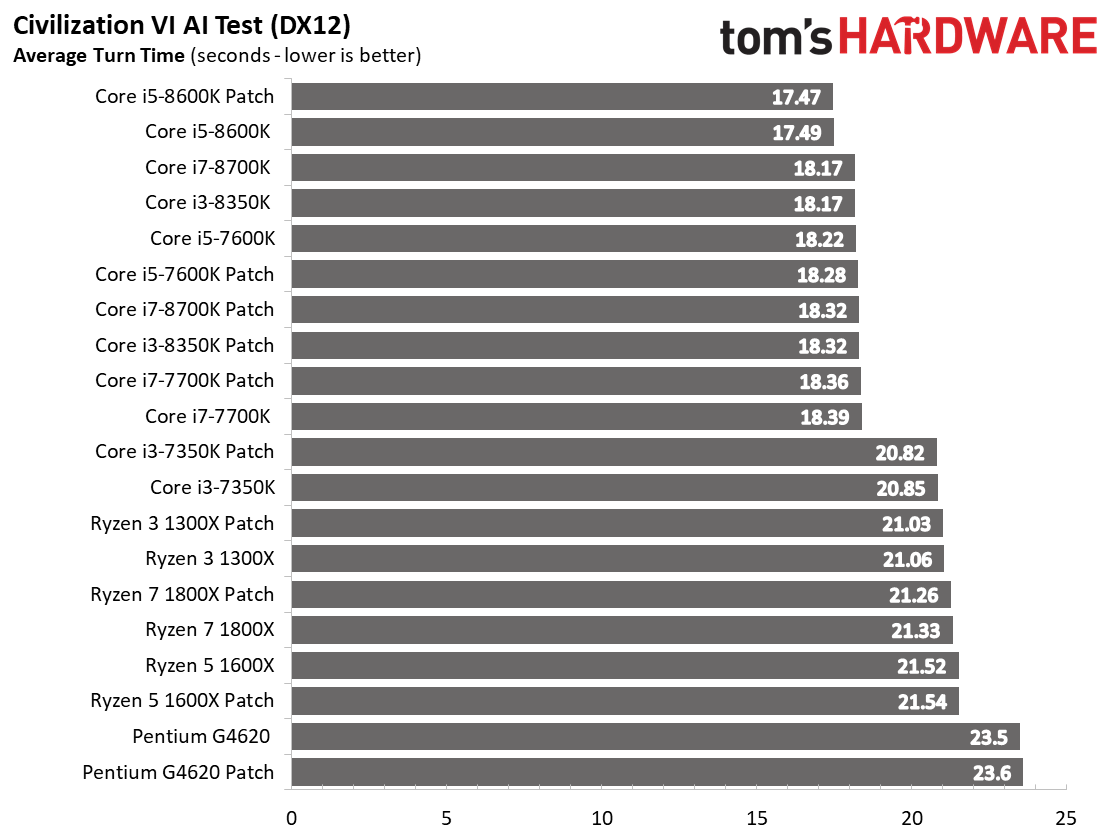Do The Meltdown and Spectre Patches Affect PC Gaming Performance? 10 CPUs Tested
Civilization VI Graphics & AI, & Dawn of War III
Civilization VI AI Test
The Civilization VI AI test measures CPU performance in a turn-based strategy game, and tends to favor a mixture of physical cores, clock rate, and IPC throughput.
Our results are a mixed bag; half of the processors are slower after the patch, but five turn out to be faster. Our largest variance is 0.15 seconds, though, so its hard to ascribe any significance to the outcome.
Civilization VI Graphics Test
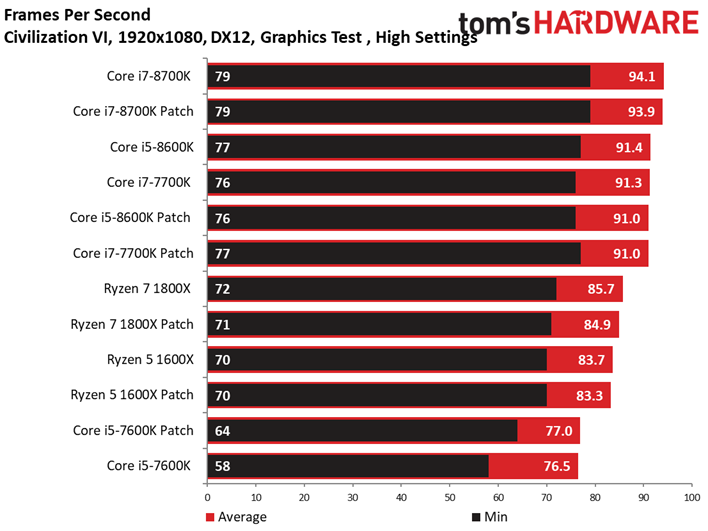
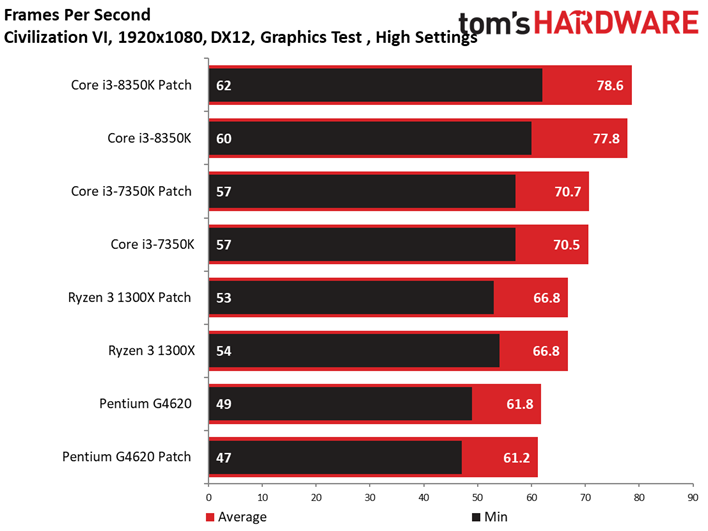
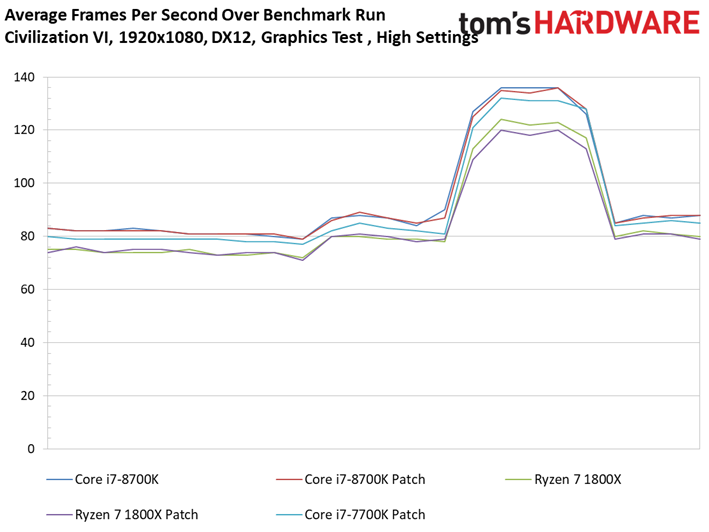
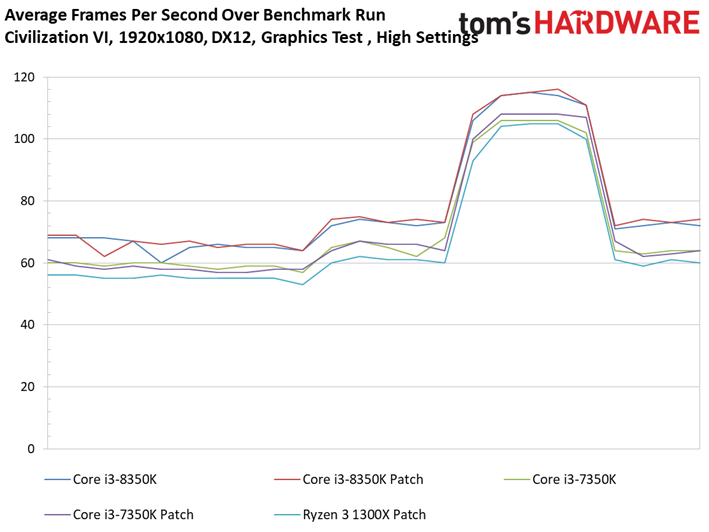
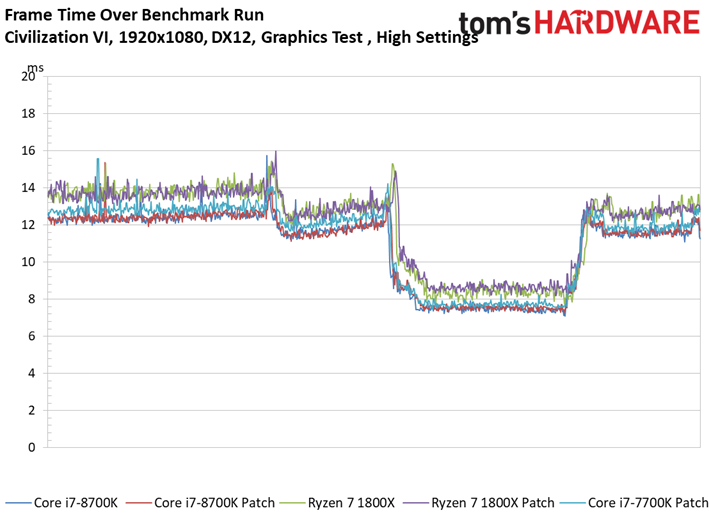
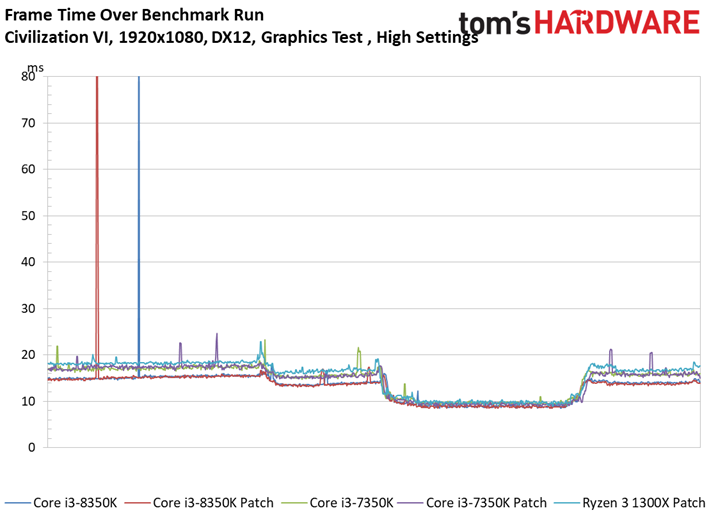
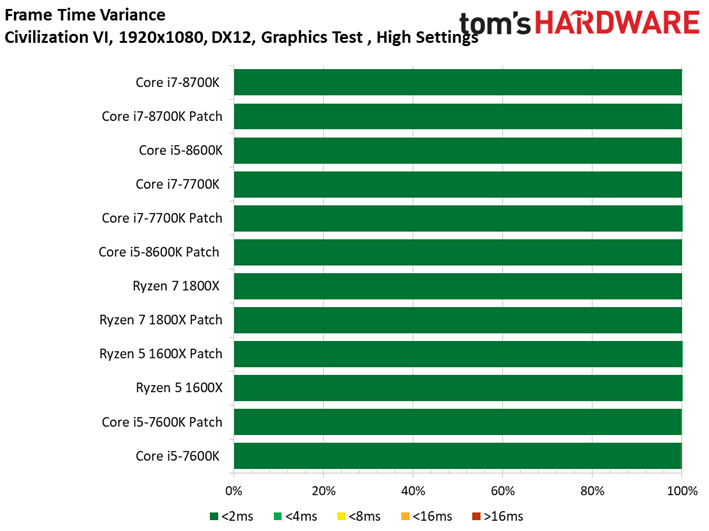
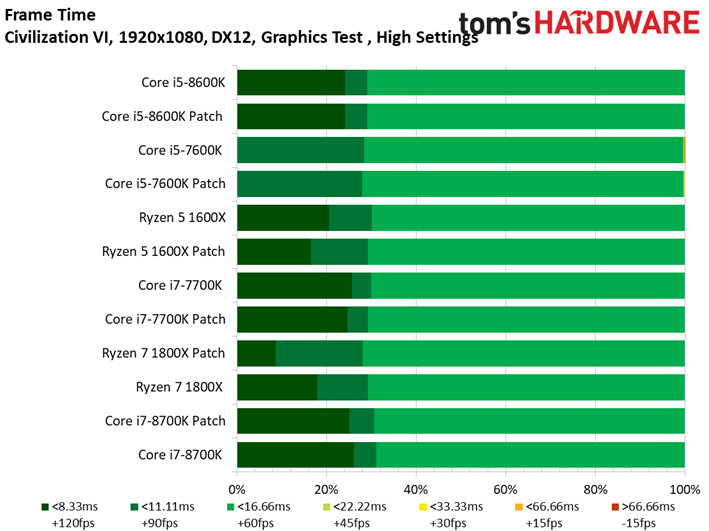
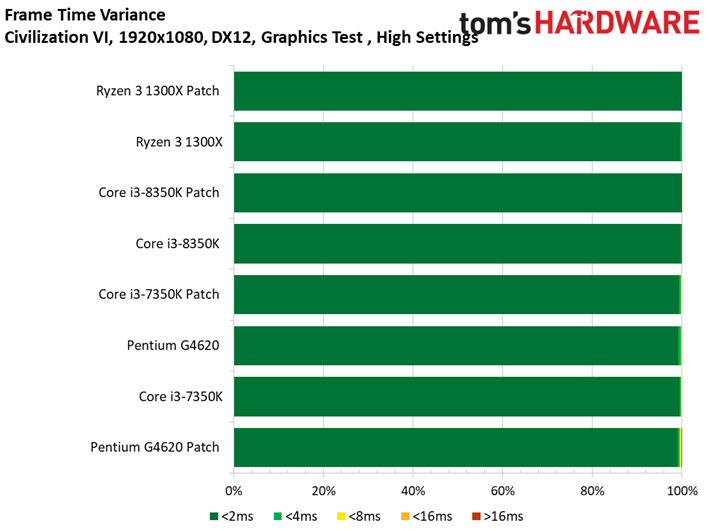
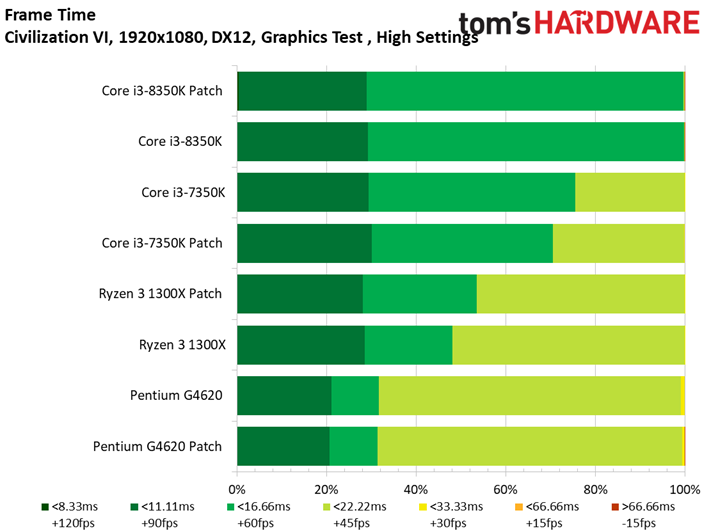
The results of our Civilization VI graphics test aren't any more surprising than what we saw in Ashes of the Singularity. There's little to no observable impact from the patches, and both configurations take turns in the lead. Ryzen 7 1800X encounters the most variance, and that's a mere .8 FPS on average (less than 1%). Even the 99th percentile metrics bounce back and forth between the patched and unpatched configurations.
Warhammer 40,000: Dawn of War III
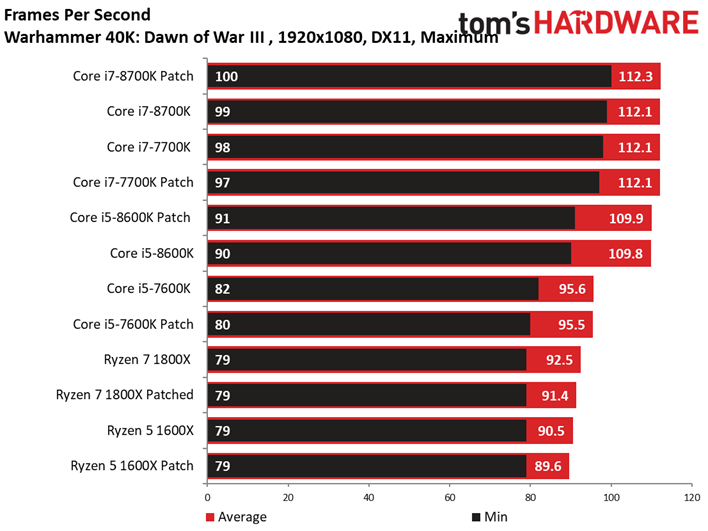
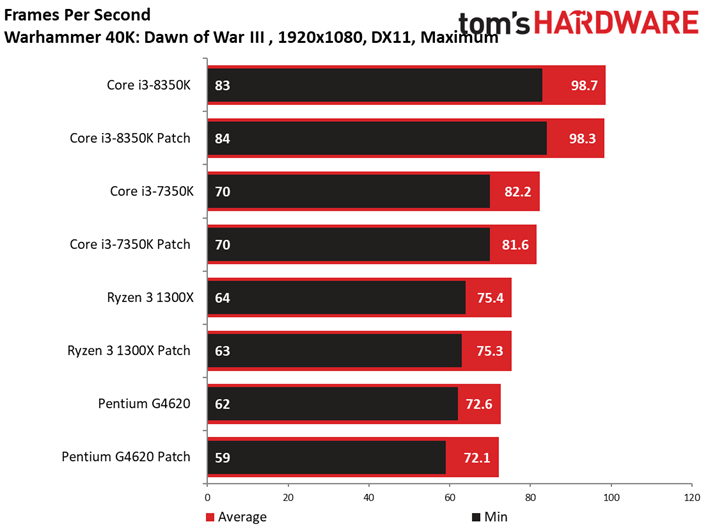
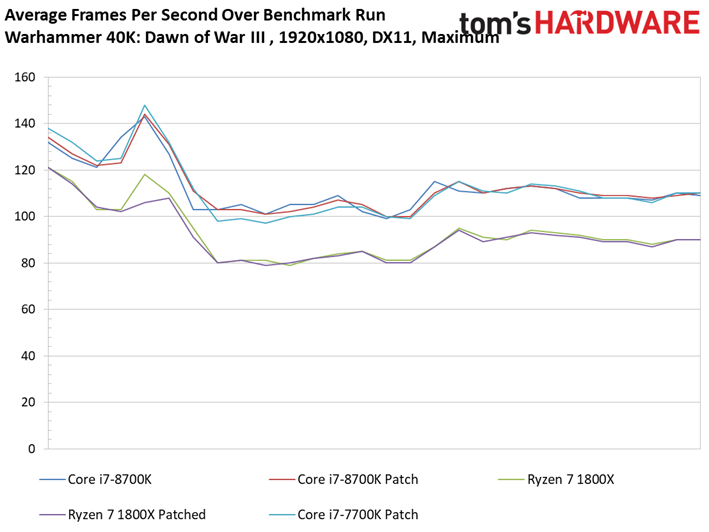
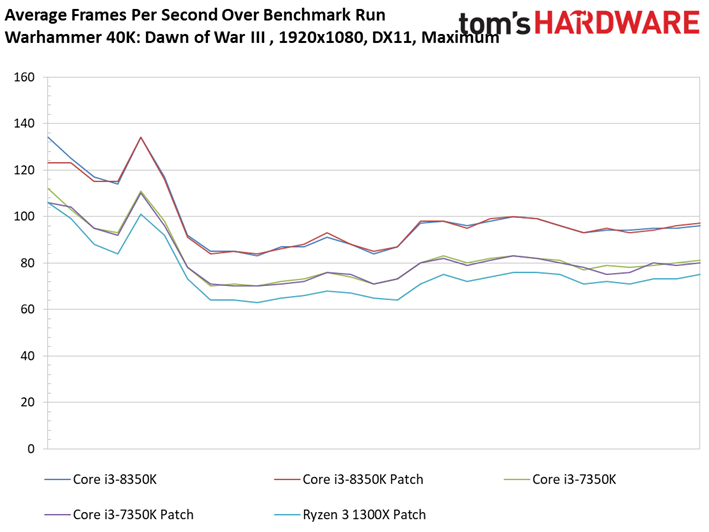
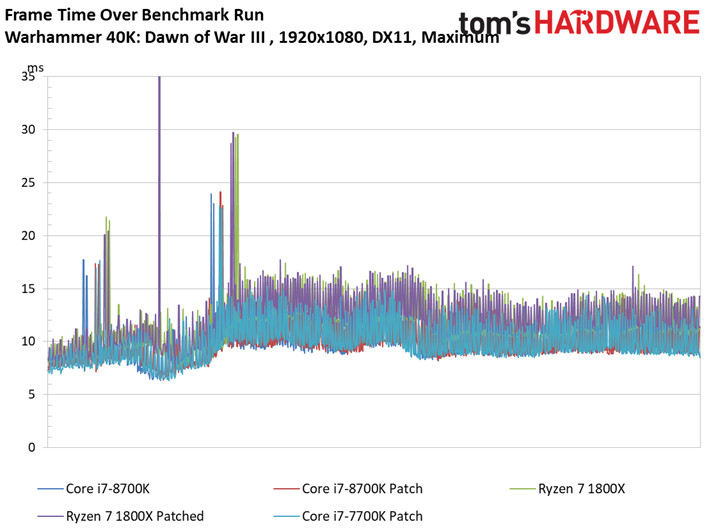
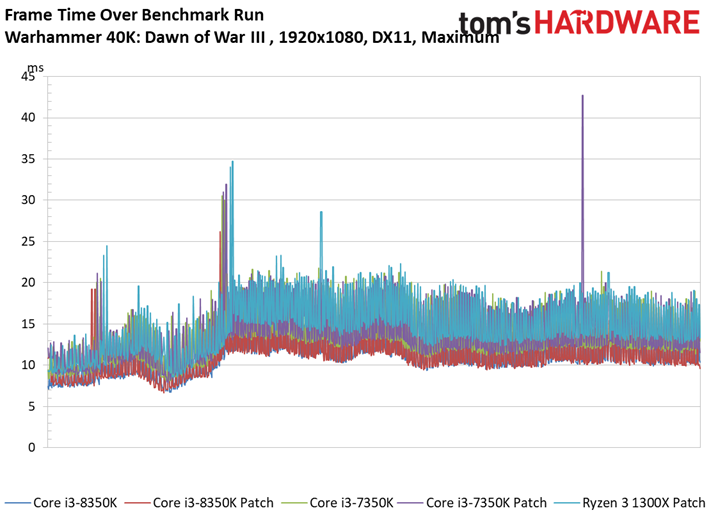
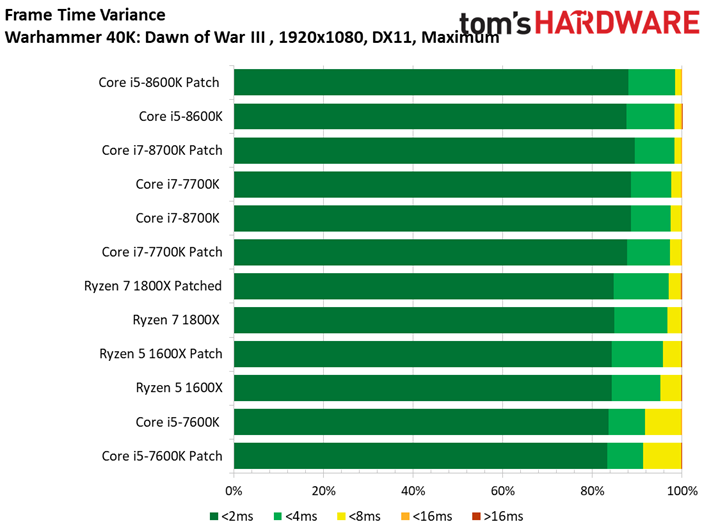
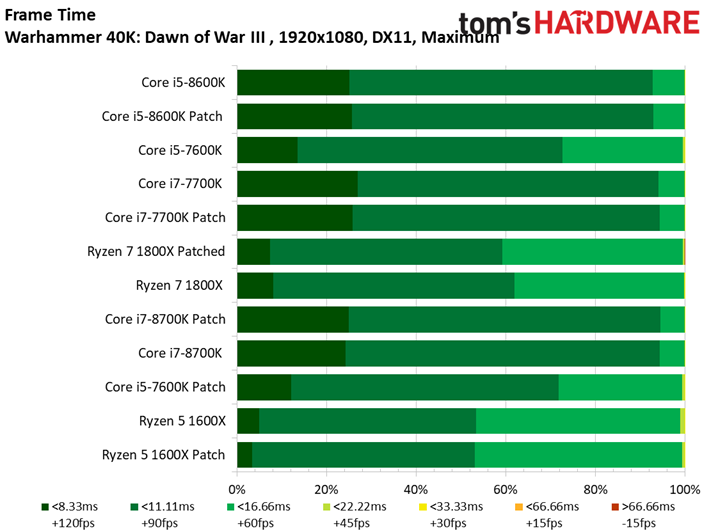
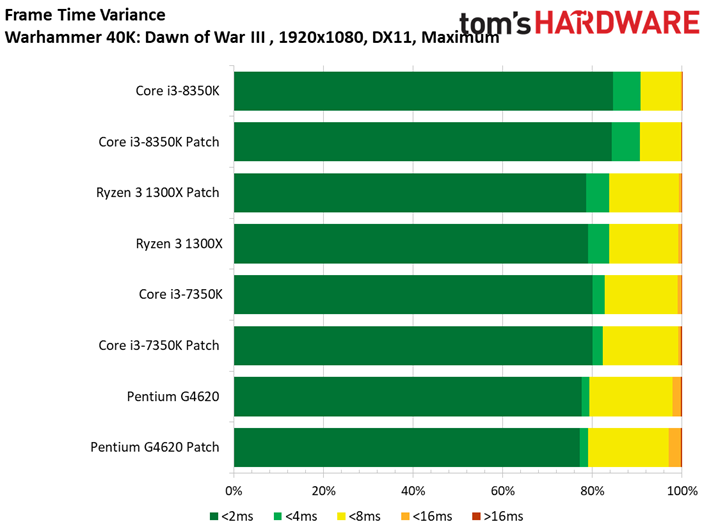
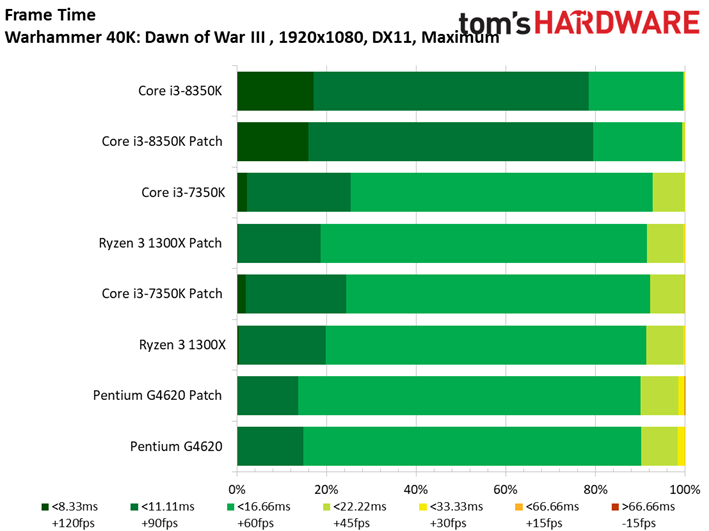
Dawn of War doesn't seem to be hampered by the patches either, although we do see our first result exceeding a 1 FPS delta. The patched Ryzen 7 1800X falls behind by 1.1 FPS, yielding a mere 1.2% difference. Again, it's a relatively mundane outcome.
MORE: CPU Security Flaw: All You Need To Know About Spectre
MORE: Best Gaming CPUs
MORE: Intel & AMD Processor Hierarchy
Get Tom's Hardware's best news and in-depth reviews, straight to your inbox.
Current page: Civilization VI Graphics & AI, & Dawn of War III
Prev Page VRMark, 3DMark & AotS: Escalation Next Page Far Cry Primal, Grand Theft Auto V & Hitman
Paul Alcorn is the Editor-in-Chief for Tom's Hardware US. He also writes news and reviews on CPUs, storage, and enterprise hardware.
-
madvicker The majority of PC users are going to be on older CPUs than the ones you've tested. These results are only pertinent to the small % of people who have recently bought a CPU / new PC. What about the rest, the majority with older CPUs? That would be a much more useful and interesting analysis for most readers....Reply -
arielmansur Newer cpus don't get a performance penalty.. but older ones sure do get a noticeable one..Reply -
salgado18 Reply20680472 said:The majority of PC users are going to be on older CPUs than the ones you've tested. These results are only pertinent to the small % of people who have recently bought a CPU / new PC. What about the rest, the majority with older CPUs? That would be a much more useful and interesting analysis for most readers....
Last page, third paragraph:
"so it's possible that the impact on older CPUs could be minor as well (game testing on those is in-progress)." -
ddearborn007 HmmmReply
3/4 of all personal computers in the world today are NOT running windows 10. I don't know the exact percentage of gaming systems that are NOT running windows 10, but surely it is substantial.
Why wasn't the performance hit measured on the operating system running 3/4 of all PC's in the world today published immediately? To date, it appears that these numbers are being withheld from the public; the only reason has to be that the performance hit is absolutely massive in many cases.........Oh, and out of the total number of PC's used world wide, "gaming" PC's are a very small percentage, again begging the question of why tests are only being published for windows 10.... -
LORD_ORION Need to test older CPUs... or is this article designed by Intel to stop people from returning recently purchased CPUs.Reply -
RCaron Excellent article Paul!Reply
I have a question.
I read originally that AMD Zen architecture had near-immunity to Spectre variant 2 because a CPU specific code (password if you will) (that changes with each CPU) was required in order to exploit the CPU. Which is why AMD was claiming that Zen was almost immune to Spectre variant 2. Is this not the case?
AMD continues to insist that Spectre 2 is difficult to exploit due to CPU architecture. You left this out, and you continually lumped AMD with Intel with respect to Spectre 2 vulnerability.
This is misleading to your readers, and portrays a bias towards Intel.
https://www.amd.com/en/corporate/speculative-execution -
tripleX Reply20680748 said:Hmmm
3/4 of all personal computers in the world today are NOT running windows 10. I don't know the exact percentage of gaming systems that are NOT running windows 10, but surely it is substantial.
Why wasn't the performance hit measured on the operating system running 3/4 of all PC's in the world today published immediately? To date, it appears that these numbers are being withheld from the public; the only reason has to be that the performance hit is absolutely massive in many cases.........Oh, and out of the total number of PC's used world wide, "gaming" PC's are a very small percentage, again begging the question of why tests are only being published for windows 10....
Global OS penetration for Win 10 and Win 7 is effectively tied.
-
Paul Alcorn Reply20680892 said:Excellent article Paul!
I have a question.
I read originally that AMD Zen architecture had near-immunity to Spectre variant 2 because a CPU specific code (password if you will) (that changes with each CPU) was required in order to exploit the CPU. Which is why AMD was claiming that Zen was almost immune to Spectre variant 2. Is this not the case?
AMD continues to insist that Spectre 2 is difficult to exploit due to CPU architecture. You left this out, and you continually lumped AMD with Intel with respect to Spectre 2 vulnerability.
This is misleading to your readers, and portrays a bias towards Intel.
https://www.amd.com/en/corporate/speculative-execution
From the AMD page (which you linked)
Google Project Zero (GPZ) Variant 1 (Bounds Check Bypass or Spectre) is applicable to AMD processors.
And...
GPZ Variant 2 (Branch Target Injection or Spectre) is applicable to AMD processors.
While we believe that AMD’s processor architectures make it difficult to exploit Variant 2, we continue to work closely with the industry on this threat. We have defined additional steps through a combination of processor microcode updates and OS patches that we will make available to AMD customers and partners to further mitigate the threat.
AMD will make optional microcode updates available to our customers and partners for Ryzen and EPYC processors starting this week. We expect to make updates available for our previous generation products over the coming weeks. These software updates will be provided by system providers and OS vendors; please check with your supplier for the latest information on the available option for your configuration and requirements.
Linux vendors have begun to roll out OS patches for AMD systems, and we are working closely with Microsoft on the timing for distributing their patches. We are also engaging closely with the Linux community on development of “return trampoline” (Retpoline) software mitigations.
AMD hasn't released the microcode updates yet, but to its credit, it's probably better to make sure it is validated fully before release.
-
DXRick Do the OS patches (without the microcode patches) fix the two exploits? If so, why would we even want the Intel patches at all?Reply
